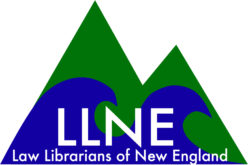By Anne McDonald, Co-Chair, LLNE GRC, & Emilie Benoit, Co-Chair, LLNE GRC
This month’s blog will focus on the activities of the AALL Government Relations Committee and how law librarians, including LLNE members, can influence their members of Congress.
The Government Relations Committee (GRO) works closely with the staff of AALL’s Government Relations Office: Director Emily Feltren and Public Policy Associate Elizabeth Holland, who work diligently with members of Congress and other good government advocacy groups on information issues according to our priorities. The Public Policy Priorities for the 114th Congress, outlines the Association’s policy goals for the next two years. Once pertinent bills are introduced, the office staff will create a bill tracking chart and update several one-pagers.
In December 2014, the GRC sponsored a fascinating look into the makeup of the 2014th Congress, made some predictions and offered some tips for advocacy in this new political landscape. Here are some excerpts:
Republicans won majority in both chambers in the November 2014 midterm elections; this is the largest Republican majority since 1928 and it is also a new Congress. Many members have served less than 6 years. With new challenges come new opportunities.
- Since many Republican members of Congress hold a high regard for transparency in government, this should make it easier to advocate for greater access to government information, such as Congressional Reports, Executive Branch memos and more access to PACER.
- Republicans emphasize smaller government, targeting ‘redundant’ programs for elimination and turning over to private sector. We need to educate Members of Congress about the Importance of Permanent Public Access to reliable government information in print and online.
- Money talks: we need to show how law libraries and agencies like the GPO, and Library of Congress save money for the government and for the Taxpayers. The Federal Depository Library Project, as we all know, provides no fee public access and potentially saves Congress staff time by answering questions on law and policy that would otherwise go to the library user’s Members of Congress to research.
- Show real world examples. Educate law makers about issues facing law libraries and how the work you do as a law librarian would be affected by a certain bill, such as elimination of the print index for the Federal Register.
Adapted from: AALL Government Relations Office. (2014). Look into our crystal ball: law librarian advocacy in the new Congress [PowerPoint slides]. http://www.aallnet.org/Documents/Government-Relations/Presentations/2014/crystalball121014.pdf
Fortunately for LLNE, there are just two new faces in Congress from any of the 6 New England states: Frank Guinta, Republican representing New Hampshire’s second Congressional District and Representative Seth Moulton (D) from Massachusetts’s 6th Congressional District. The rest are all incumbents, which should make our task easier.
Want to get the latest scoop on the legislation we are tracking and GRC training opportunities?
Be sure to subscribe to the Advocacy listserv and the Washington Blawg.
There will be two upcoming training opportunities: online advocacy training on Feb. 11 titled “Understanding the Federal Budget Process” (register here) and the third annual Local Advocate Lobby Day on March 18 in Washington, DC (register here). Both events are free for LLNE members, although Lobby Day participants must make their own travel and lodging arrangements.
Slides from past trainings are available on the Presentations page: http://www.aallnet.org/Documents/Government-Relations/Presentations/2014.
Although the Government Relations Office primarily focuses on federal information policy issues, in recent years the office has been involved in some state issues, particularly UELMA and is available to assist chapters with UELMA and related state issues.
AALL’s Director of Government Relations Emily Feltren reports that the Uniform Laws Commissioners in Rhode Island, Massachusetts, Vermont and Maine have put UELMA legislation on their enactment plans, which does not in itself guarantee that legislation will be introduced and followed through, but this does give some weight to the importance of UELMA.
The legislatures in New England states are in the first weeks of a new session and have not had much action to date. LLNE GRC will be tracking legislation related to information policy and libraries in all of our member states and keep our members up to date in the coming months. Here is the link to AALL’s state issues pages. http://www.aallnet.org/mm/Advocacy/aallwash/stateissues
